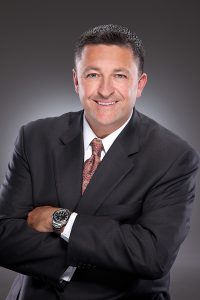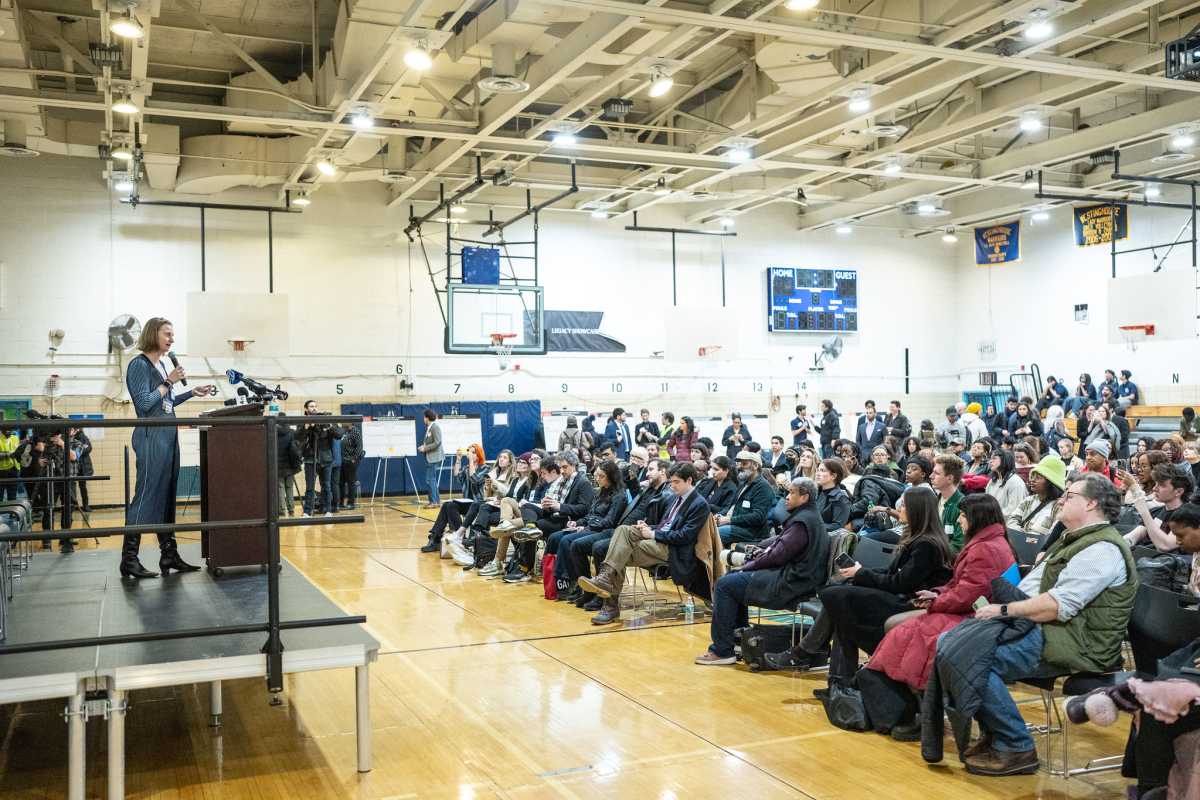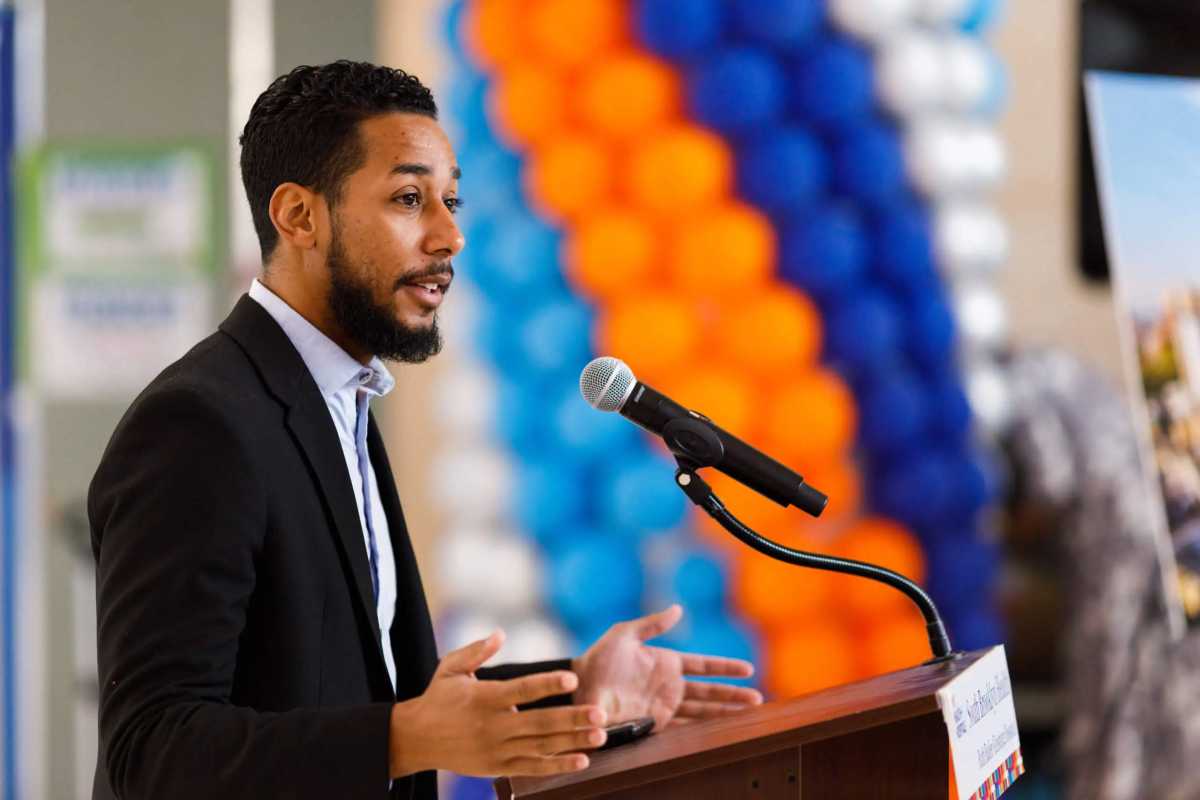Editor’s Note: Eva Moskowitz is the Founder and CEO of Success Academy Charter Schools.
Of the many people coming to, leaving from, or moving within the de Blasio administration, none will likely have a longer-lasting effect on the lives of New Yorkers than the new Schools Chancellor.
The Mayor’s aides said last night that the de Blasio Administration is conducting a national search for the new chancellor. New York City students and their families deserve no less. What follows is a list of 14 extraordinarily capable educators from around the country, each of whom would be an excellent contender to lead the largest school system in the country.
I should note that not all of the leaders highlighted below are charter school supporters. Mayor de Blasio and I have had profound disagreements about how best to educate our children since I was the City Council’s Education Chair and he was a fellow City Councilman, but we share the deep belief that we need the best possible person leading our schools. All of the leaders below are individuals with the experience and skills to run New York’s schools, and are the type of candidates that all New Yorkers should hope this Mayor can attract.
 Robert Runcie, Superintendent of Broward County Public Schools, Florida
Robert Runcie, Superintendent of Broward County Public Schools, Florida
Runcie currently serves as Superintendent of Broward County Public Schools (2011 – Present), which enrolls 270,000 students and is the sixth largest public school system in the United States.
Under his leadership, BCPS has made significant
strides to improve computer science education and
established itself as model in dismantling the school-to-prison pipeline, with student arrests
down by 65%. Although Runcie says he supports fair funding for all public schools — charter and
traditional — he has sued the state legislature in his capacity as Superintendent to block a bill that
would divert additional revenue to charter schools.
 Tom Boasberg, Superintendent of Denver Public Schools
Tom Boasberg, Superintendent of Denver Public Schools
Boasberg is the Superintendent of Denver Public Schools (DPS), since 2009, which moved from last place to first place in student achievement growth among Colorado districts under his leadership.
Boasberg has overseen record enrollment increases, a 25-point gain in graduation rates, and a 60 percent reduction to DPS’s drop out rate. He credits much of his success to a non-ideological approach to solving problems, saying he implements solutions preferred by advocates on both sides of complex issues. Boasberg’s tenure has seen the introduction of color-coded “Equity Scores” to assess achievement among high-needs groups as well as “innovation zones” that grant schools expanded freedom in how they allocate funding. He is a staunch advocate of school choice via an approach that emphasizes collaboration.
 Dr. Robert Avossa, Ed.D. Palm Beach County School District.
Dr. Robert Avossa, Ed.D. Palm Beach County School District.
Avossa has led the district since June 2015, which is the eleventh largest in the nation and the fifth largest in the State of Florida with 180 schools, serving more than 193,000 students.
Under Dr. Avossa’s leadership Palm Beach County has no “F” rated schools, and in total 61% of schools are rated “A” or “B”. Avossa redirected $5.5 million of the District budget back to Title I schools, and the District now leads the state in the graduation rate of black males.
The school board has rated him “highly effective” for three consecutive years.
Malika Anderson, Former Superintendent of Tennessee’s Achievement School District
In September 2017, Anderson stepped down after a two-year tenure as Superintendent of Tennessee’s Achievement School District (ASD), which tripled in size under her leadership and was originally created to improve student outcomes at the bottom 5 percent of state schools. Before joining ASD’s leadership team in 2012, Anderson served as director of school turnaround in the District of Columbia. Anderson, who says she believes in the need for turnaround programs to “shine a light on the needs of children that are in persistently failing schools,” currently sits on the board of a high-performing Nashville charter school network as well as the board of a wraparound-services provider with a proven track record of improving outcomes for high-needs high schoolers in Tennessee.
Andres Alonso, Professor at Harvard Graduate School of Education & Former CEO of Baltimore Public Schools
Alonso is currently a professor at the Harvard Graduate School of Education, where he teaches a course on urban and systemic reform and contributes to Harvard’s educational leadership programming. He began his professorship in 2013 after resigning from his six-year tenure as CEO of Baltimore Public Schools (BPS). Alonso’s reform-focused leadership in Baltimore drove improvement across student achievement and school climate metrics and contributed to the district’s first enrollment increases in 40 years. Prior to serving BPS, Alonso worked for NYC Department of Education as Chief of Staff and Deputy Chancellor for Teaching and Learning.
Dr. Desmond Blackburn, Superintendent Brevard Public Schools, Florida
Dr. Blackburn has served as the Superintendent of Brevard Public Schools since July 2015. Brevard Public Schools (BPS) is the tenth largest district in Florida and serves over 73,000 students. Under his leadership, BPS developed and implemented a new strategic plan that has realigned the district’s resources with student need. Additionally, the district has achieved its highest graduation rate in the last five years. As a result, BPS ranked in the state’s Top 10 for graduation rates, exceeding the statewide average by 9.6 points. The district also earned the state’s highest accountability rating and was rated an ‘A’ district.
Dr. Barbara Jenkins, Superintendent of Orange County Public Schools, Florida
Dr. Jenkins has supervised Orange County Public Schools (OCPS) since 2012. OCPS is the tenth largest school district in the country and fourth largest school district in Florida. OCPS serves over 200,000 students in Central Florida. Under her leadership, OCPS was awarded the prestigious Broad Prize for Urban Education in 2014. The half million dollar award was used for student scholarships.
In 2015-2016, OCPS boasted an all-time high graduation rate of 92.2%.
Alberto M. Carvalho, Superintendent of Miami-Dade County Public Schools
Alberto M. Carvalho has served as Superintendent of Miami-Dade County Public Schools since 2008, which serves 345,000 students in 392 schools, making it the fourth largest school district in the U.S. Carvalho was named the 2014 Superintendent of the Year by the School Superintendents Association, and is a “nationally recognized expert on education transformation, finance, and leadership development.” He is a proponent of school choice, and under his leadership Miami-Dade County Public Schools has received national recognition and “unprecedented increases in student achievement and graduation rates.”
Antwan Wilson, Chancellor of D.C. Public Schools
Wilson was appointed chancellor of D.C. Public Schools in February of 2017, which serves over 48,000 students in 115 schools. He, along with Mayor Bowser, released a five-year strategic plan, with 6 specific goals including: “increasing the number of students who are college- and career-ready, getting all young children reading on grade level, an 85 percent on-time graduation rate, and a 90 percent re-enrollment rate.” During his tenure at Oakland Unified School District (OUSD), he collaborated across the city on the Oakland Promise, an initiative to triple the number of college graduates from Oakland, and the Equity Pledge, an emerging partnership between district and charter leaders.
Dr. William Hite Jr. Superintendent of the School District of Philadelphia
Dr. Hite has presided over the School District of Philadelphia since June 2012. The Philadelphia school district is the largest school district in Pennsylvania serving over 128,000 district students and is the eighth largest district in the nation. Dr. Hite is a lifelong educator and previously served as the Superintendent of Prince George’s County Public Schools (MD). As Philadelphia’s Superintendent, he oversaw the successful negotiation of the teacher’s union contract, which had been stalled for several years. Dr. Hite has also been credited with stabilizing the struggling district’s finances
Lewis Ferebee, Superintendent of Indianapolis Public Schools
Ferebee serves as Superintendent of Indianapolis Public Schools (2013 – Present), where he has overseen double-digit improvements in end-of-year assessments, aggressive reductions in student dropout rates, and marked improvement in graduation rates relative to the statewide average. His tenure at IPS has been praised for its collaborative approach to building bridges between advocates on different sides of complex issues, including charter schools. Prior to joining IPS, Ferebee served as Chief of Staff for Durham Public Schools, where he reduced the number of schools designated “low-performing” by the state to zero and increased secondary math proficiency above 95%.
Pedro Martinez, Superintendent of San Antonio Independent School District
Currently serves as Superintendent of San Antonio Independent School District (2015 – Present), where he laid out a “bold plan” to build a model urban school district. SAISD has made significant progress toward his goals of improving student achievement and preparing graduates for college: admission to Tier 1 universities has almost doubled, and almost nine out of ten seniors are applying to at least one four-year university. Prior to joining SAISD, Martinez was Superintendent for the 64,000-student Washoe County School District, where he improved graduation rates and increased the number of students taking Advanced Placement exams. Martinez is regarded as a data-driven leader with a strong financial background and an in-depth knowledge of academic reform strategies.
David Steiner, Executive Director for Institute of Education Policy at Johns Hopkins & Former Commissioner of the New York State Education Department
Steiner currently works as Executive Director for the Institute of Education Policy at Johns Hopkins, a role he assumed after resigning from his two year tenure as Commissioner of New York State Education Department in 2011. As Commissioner, Steiner quarterbacked New York State’s $700 million Race To The Top Application in support of redesigning the state’s standards, assessments, and teacher certification requirements. Steiner has frequently consulted with the federal government, state education leaders, advocacy organizations, and universities.
Clayton Wilcox, Superintendent of Charlotte Public Schools
Wilcox was named superintendent of Charlotte-Mecklenburg Schools in July of 2017 which serves more than 146,000 students in 170 schools. Wilcox was chosen to oversee Charlotte-Mecklenburg as a fresh appointee, emphasizing “stability and expertise over flash and ambition” since his predecessor was the fourth superintendent in five years. Wilcox previously served as superintendent for school districts in East Baton Rouge, Florida and Maryland, and has worked in the education field since 1979 when he began his career as a teacher in Illinois.










